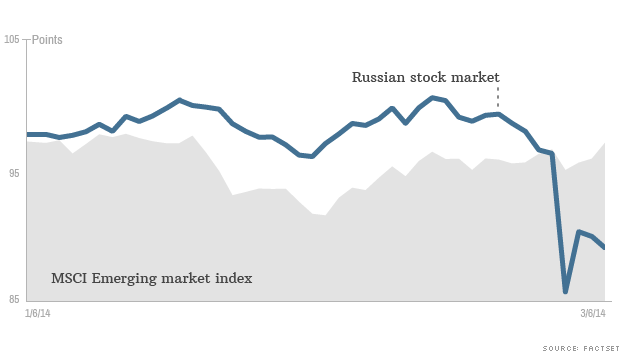No Sift next week. The next new articles will appear April 13.
The record of thousands upon thousands of people arrested in this way is everywhere in the South. In the fall, when it was time to pick cotton, huge numbers of black people are arrested in all of the cotton-growing counties. There are surges in arrests in counties in Alabama in the days before, coincidentally, a labor agent from the coal mines in Birmingham is coming to town that day to pick up whichever county convicts are there.
-- Douglas Blackmon,
Slavery By Another Name: The Re-Enslavement of Black Americans from the Civil War to World War II
And this system is one that I think in many ways needs to be understood as brutal in a social sense, but fiendishly rational in an economic sense. Because where else could one take a black worker and work them literally to death, after slavery? And when that worker died, one simply had to go and get another convict.
-- Prof. Adam Green, University of Chicago
quoted in Slavery By Another Name
This week's featured articles are "Slavery Lasted Until Pearl Harbor" and "Not Primarily Students, Not Really Amateurs".
This week lots of people were talking about the Supreme Court
The Court began hearing arguments in Hobby Lobby case testing the ObamaCare contraception mandate. Slate's Dahlia Lithwick is pessimistic:
The rights of millions of women to preventive health care and workplace equality elicit almost no sign of sympathy or solicitude from the right wing of the bench today. Nor does the possibility that religious conscience objections may soon swallow up the civil rights laws protecting gay workers, women, and other minorities. Religious freedom trumps because we’re “only” talking about birth control.
In general, it's a mistake to read too much into the questions the justices ask. When the constitutionality of the individual mandate was argued before the Court, I don't remember anyone predicting that Chief Justice Roberts would save it.
and the ObamaCare deadline
Sort of. It was supposed to be today, but if you were in the process of applying and got hung up by the technical problems on the web site, you get to finish.
Administration officials ... compare it to the Election Day practice of allowing people to vote if they are in line when the polls close.
According to the L.A. Times, 9.5 million previously uninsured Americans now have coverage: some directly through the ObamaCare marketplaces, some directly from insurance companies, some through the expansion of Medicaid, and some because the law allows more young people to stay on their parents insurance plans.
A series of ObamaCare horror stories have gotten national attention, mostly to be debunked later. But it's about time that people start paying attention to the success stories.
It's also time to make state-level Republicans pay the price for not expanding Medicaid. In an article on the Health Affairs blog, three public-health professors and a medical student run the numbers:
We estimate the number of deaths attributable to the lack of Medicaid expansion in opt-out states at between 7,115 and 17,104. Medicaid expansion in opt-out states would have resulted in 712,037 fewer persons screening positive for depression and 240,700 fewer individuals suffering catastrophic medical expenditures. Medicaid expansion in these states would have resulted in 422,553 more diabetics receiving medication for their illness, 195,492 more mammograms among women age 50-64 years and 443,677 more pap smears among women age 21-64. Expansion would have resulted in an additional 658,888 women in need of mammograms gaining insurance, as well as 3.1 million women who should receive regular pap smears.
and the Christie administration's report on the bridge scandal
which came to the unsurprising conclusion that Governor Christie did nothing wrong. "Our findings today are a vindication of Gov. Christie," said the report's author, Randy Maestro.
In response, all of Chris Christie's critics said, "I'm glad that's settled, let's move on."
No, seriously, Christie's critics were appalled that he spent taxpayer money to produce such a self-serving report, and the word "whitewash" keeps cropping up. Hoboken Mayor Dawn Zimmer, who claims the administration withheld federal relief money from Hoboken after Hurricane Sandy to pressure her to approve a deal favoring Christie's private-sector allies, said:
Randy Mastro could have written his report the day he was hired and saved the taxpayers the million dollars in fees he billed in generating this one-sided whitewash.
And the New York Times editorial page was equally unkind:
We can now add this expensive whitewash to the other evidence of trouble in Mr. Christie’s administration. If Mr. Christie really wants to win back public trust, he and his political allies can start by paying for this internal inquiry out of their own pockets. Then the governor and these lawyers can make all emails and any other crucial information available to federal and state investigators.
Investigations by the New Jersey legislature and the U.S. attorney will continue.
and (for some reason) a raft of sports-and-labor stories
beginning with the ruling that Northwestern's football players are employees who can unionize. I cover this in "Not Primarily Students, Not Really Amateurs"
and you also might be interested in ...
A federal appeals court in Texas found the state's new regulations on abortion clinics constitutional, in spite of the fact that they have caused a third of the state's abortion clinics to close and have little medical evidence supporting their value. The court found that living three hours away from the nearest clinic was not an undue burden on a woman's right to have access to abortion services.
A similar law in Wisconsin has been found unconstitutional by that district's appeals court. Since a law can't be constitutional in one part of the country and unconstitutional in another, the Supreme Court will have to resolve the difference.
Lately I've been on a reading jag centering on the Confederacy and the Reconstruction Era. (You'll be hearing about it. Today's book review is just the start.) I can't help noticing the similarities between the current campaign against abortion rights and the South's post-Reconstruction campaign against the rights former slaves were granted by the 13th, 14th, and 15th Amendments. In both cases, the strategy was to leave the rights on the books, but make them impossible to claim. The post-Reconstruction Supreme Court winked at that. We'll see what this era's Court does.

Once you convince yourself that sexuality is a choice, all sorts of otherwise innocent things start to look like advertising for the gay "option". AlterNet's Katie Halper collects the "10 Weirdest Things the Christian Right Thinks Will Turn Your Kids Gay".
One that deserves special attention is a 4000-word screed on the "Well-Behaved Mormon Woman" blog, which decodes the gay message encrypted in the Disney movie Frozen, and particularly in its hit song "Let It Go". (The movie clip isn't YouTubed, but a great cover is here.)
I haven't seen the movie, but in WBMW's retelling the plot centers on a princess whose parents insist her socially-unacceptable magic power be hidden, and how she finds liberation. What could a hidden power symbolize, other than lesbianism?
Actually, it might symbolize sexual desire in general, as dancing does in Footloose. Or maybe creativity, like the color in Pleasantville. Or the symbolism might vary from one viewer to the next. Maybe you were a reader in an anti-intellectual family, a rationalist in a religious family, or even a religious seeker in a rationalist family. (In this season of The Americans, it's been fun watching the KGB-mole parents freak out as their daughter explores Christianity.) If you made it out the other side of adolescence, probably at some point you wondered whether the world could accept what you were finding inside yourself.
For Harry Chapin, the magic power of music might be locked inside an ordinary taxi driver:
Oh, I've got something inside me
To drive a princess blind.
There's a wild man wizard,
He's hiding in me, illuminating my mind.
Oh, I've got something inside me,
Not what my life's about.
'Cause I've been letting my outside tide me
Over 'til my time, runs out.
But to WBMW, a hidden magic power must be homosexuality. Personally, I agree with the analysis in Tom Lehrer's "Smut": "filth ... is in the mind of the beholder".
When correctly viewed,
Everything is lewd.
I could tell you things about Peter Pan,
And the Wizard of Oz -- there's a dirty old man.
 [Defending the gay agenda since 1963.]
[Defending the gay agenda since 1963.]One of her commenters wonders what WBMW will make of The Lego Movie, which I have seen. It really is propaganda in favor of a society that can reconfigure itself rather than be Krazy-glued into a single "ideal" arrangement. But then, if you squint really hard, Legos themselves are propaganda for that.
And I hope WBMW never takes a hard look at the mythology underlying the X-Men. You see, sometime in adolescence, previously normal kids discover that they're "mutants" with special powers. Society is afraid of them and wants to kill them just for being what they are. So they stay hidden and band together secretly with other mutants.
How gay is that?
Whenever I'm tempted to complain about NYT conservative columnist Ross Douthat, I recall that he replaced Bill Kristol and count my blessings. Douthat's columns often imply some outright falsehood or rely on an outrageous leap of logic, but do seem to represent an intelligent person trying to make sense of the world.
For example, Sunday's "The Christian Penumbra" -- his two cents on "religious freedom". He makes a point that I first heard in Robert Putnam's American Grace: The benefits of religion come not from belief or even faith, but from practice and community. He goes on to blame the dysfunctionality of the Bible belt (high divorce rates, high teen pregnancy, high sexually transmitted diseases) on non-practicing believers. And then he completely loses me by arriving at some conclusion about Hobby-Lobby-style religious freedom.
Oh well, it's better that whatever Bill Kristol would have written.
ThinkProgress argues with the people who think Neil deGrasse Tyson’s Cosmos series is ignoring creationism. He's not saying the word, but the things he's choosing to talk about are strongly influenced by the claims of creationists. I think this what Joseph Campbell meant by his term "invisible counterplayer".
and let's end with something amazing
If you've got the will to rock, it doesn't matter that you only have two cellos and it's the 18th century.




